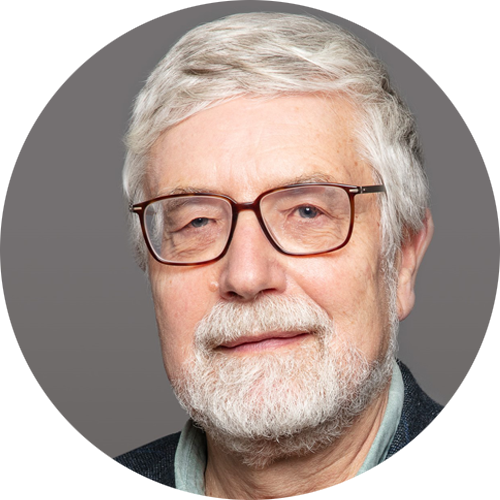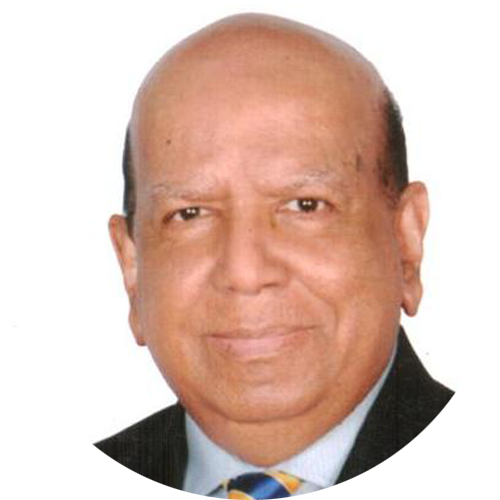Preventing and Adapting: How Data Science Can Help Peacekeepers
This concluding panel puts the insights of the scientific discussions of the day back into perspective of the larger political debates of Day 1. It addresses the implications for crisis prevention and adaptation as well as environmental peacebuilding, discussing how and in which way climate-sensitive approaches to early action can be implemented and advanced. In this context, panellists will also touch upon lessons-learned and best practices from anticipatory action and disaster risk reduction as well as discuss the potential and limitations of transferring them to the field of peace and stability.
Bridging the gaps between the environmental, peacebuilding/prevention and data science communities, this panel also examines potential institutional challenges to data exchange and joint analytical platforms. The panellists will explore how to overcome these challenges to enable an increasingly cross-cutting collaboration on data analytics for sustaining peace amidst the climate crisis and new multilateral partnerships.

Prof. Ilan Kelman
Ilan Kelman http://www.ilankelman.org and Twitter/Instagram @ILANKELMAN is Professor of Disasters and Health at University College London, England and a Professor II at the University of Agder, Kristiansand, Norway. His overall research interest is linking disasters and health, including the integration of climate change into disaster research and health research. That covers three main areas: (i) disaster diplomacy and health diplomacy http://www.disasterdiplomacy.org ; (ii) island sustainability involving safe and healthy communities in isolated locations http://www.islandvulnerability.org ; and (iii) risk education for health and disasters http://www.riskred.org

Prof. Michael Brzoska
Michael Brzoska is an economist and political scientist who until 2016 directed the Institute for Peace Research and Security Policy (IFSH) at the University of Hamburg, Germany, and was a Professor at the University. He now is a Senior Research Fellow at the IFSH as well as an Associate Senior Fellow at the Stockholm International Peace Research Institute (SIPRI). He has published widely on economic and political aspects of peace and security as well as the security consequences of climate change.

Major General ANM Muniruzzaman
Major General Muniruzzaman (Retd) is a former career military officer who served 38 years in active duty. Commissioned in the Field Artillery, he commanded a Field Artillery r e g i m e n t and two artillery brigades. He has also commanded an Infantry Brigade and an Infantry Division. He s e r v e d in a plethora of key operational staff appointments including as the Chief Operational Staff Officer of an Infantry division. General Muniruzzaman served as a faculty member at the Defence Services Command and Staff College (DSCSC) and has lectured at the Armed Forces War College and the National Defence College in Dhaka. He had the distinction of serving as the Military Secretary (Principal Military Advisor) to the President of Bangladesh. He later served as the Director General and CEO of the Bangladesh Institute of International and Strategic Studies [BIISS] under the Ministry of Foreign Affairs. He has been an appointed as a Lifetime Honourary Advisor to the board of the institute. He was part of and led a number of military delegations to various countries and NATO exercises. General Muniruzzaman is an experienced peace keeper, he has taught t h e subject as a faculty member and h a s b e e n a p r a c t i t i o n e r i n t h e f i e l d . . He was also instrumental in the establishment of the Bangladesh Institute of Peace Support Operations Training (BIPSOT). He was a member and head of the country contingent to United National Transitional A u t h o r i t y in C a m b o d i a ( UNTAC) and represented UNTAC in Thailand. During that tenure he worked very closely with the Ministry of Foreign Affairs of the Kingdom of Thailand, Headquarters of the Royal Thai Army and other government departments in Thailand. He also had the distinction of heading the post-election UN Stablisation Mission in Cambodia (established under UN Security Council Resolution 880-1993). In his role as Chief of the mission, General Muniruzzaman monitored the political and security stability situation of the country and a c t e d as a link between the government of C a m b o d i a and the UN Secretary General's office in New York. General Muniruzzaman established the Bangladesh Institute of Peace and Security Studies (BIPSS) in 2007 upon his retirement from the Army. BIPSS focuses on the whole spectrum of security issues - traditional, non- traditional and trans-national security issues. General Muniruzzaman is also the current Chairman of the Global Military Advisory Council on Climate Change (GMACCC), a global advisory body of over 30 serving and retired General and Flag officers drawn from all continents. He was also an advisor on Climate Change and Energy Security at the G-20 consultative Process. As Chairman of GMACCC he first issued the International Call in COP 15 in Copenhagen to draw attention of world leaders to the consequences of climate change and climate security. He was involved with the German initiative of articulating the climate security discourse and led several meetings in the process in different capitals of the world. He was invited by the UN Security Council in New York to brief them on the security implications of the sea level rise. He was involved with the British Foreign Office project on climate change strategy paper and also played the climate change impact multi – country war game. He has written extensively on climate change issues and named by the Weather Channel, USA as one of the ‘25 Strategic Voices on Climate Change’. He is a frequent speaker on international security and policy issues in the international conference and lecture circuit. He regularly attends and speaks at the annual conference on ‘Enriching the Middle East’s Economic Future’ hosted by Foreign Ministry of the State of Qatar. He has spoken at a number of major international conferences across the world including IISS Asia Security Summit, Global Strategic Review, World Security Conference among others. Most recently he attended the Central and South Asia summit on Countering Violent Extremism in Astana, Kazakhstan. He has also been a resource person in a number of conferences on HADR issues organised by the United States Pacific Command. He sits on the board of the Council for Asian Transnational Threats Research (CATR). He was also selected to be a part of the core group for the formation of United Nations World Security University. He was a Visiting Senior Fellow at the Peace Research Institute of Oslo (PRIO), Norway and at S. Rajaratnam School of International Studies (RSIS) in Singapore. He is also a Distinguished Fellow of Institute of National Security Studies Sri Lanka (INSSSH). General Muniruzzaman has a wide training and education background. He is an alumnus of the National University of Bangladesh, National Defence College, Malaysian Armed Forces Staff College, US Naval War College, Asia Pacific Center for Security Studies [APCSS] in Hawaii and the John F Kennedy School of Government at Harvard University. In 2014, he was awarded the APCSS Alumni Achievement Award. He is also an alumnus of the Near East and South Asia Center and the National Defense University, USA. General Muniruzzaman frequently appears on local and international media on issues related to South Asian security. He has also testified before the Foreign Affairs Committee of the US House of Representatives during a special hearing on Bangladesh. General Muniruzzaman is a ‘Global Expert’ with Wikistrat and has led a number of global simulation studies. He has published numerous articles, special reports and chapters in edited books. He is the Editor of the academic journal Peace and Security Review.

Mr. Adam Day
Director of Programmes
Adam Day is Director of Programmes at UN University Centre for Policy Research. He focuses on climate-security, conflict prevention, human rights, rule of law, peacekeeping, and global governance. He served for a decade in UN peace operations, including as Senior Political Adviser to the UN peacekeeping mission in the Democratic Republic of the Congo, and as a political officer in Sudan, South Sudan, the Middle East, and UN Headquarters. A human rights lawyer by training, he worked previously for the International Criminal Tribunal for the former Yugoslavia, Open Society Justice Initiative (Cambodia), and Human Rights Watch. He holds a PhD in War Studies from King’s College London, a Masters in Law and Diplomacy from the Fletcher School, and a Juris Doctorate from UC Berkeley School of Law. His most recent book, States of Disorder, employs complexity theory to critique international statebuilding.
